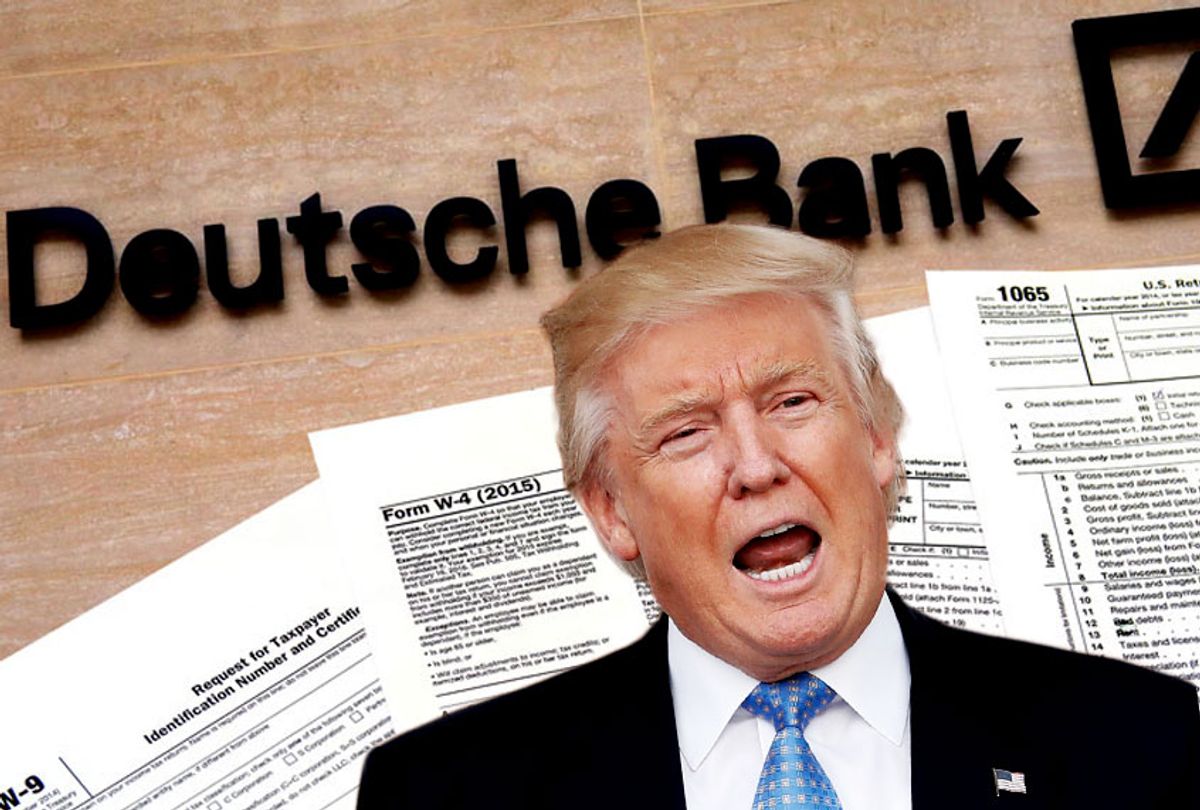New York prosecutors seeking President Donald Trump's tax documents last year subpoenaed Deutsche Bank, which turned over "detailed records" on the president's finances, according to a new report.
Deutsche Bank has been Trump's primary lender for decades after other mainstream banks refused to do business with his company following a series of bankruptcies and defaults, lending him more than $2 billion over the last 20 years.
The German-based bank complied with the subpoena and provided Manhattan District Attorney Cy Vance "detailed records" over a "period of months," including financial statements and other documents Trump provided the bank when he sought loans, The New York Times reported.
Vance has also sought Trump's tax returns as part of a probe, which at least initially, appeared to focus on hush money payments from Trump to adult film actress Stormy Daniels and model Karen McDougal, both of whom alleged they had affairs with the president.
But Vance's office said in a court filing this week that the investigation is much broader, citing "public reports of possibly extensive and protracted criminal conduct at the Trump Organization." The prosecutors suggested that they were also investigating crimes related to bank and insurance fraud.
Longtime former Trump fixer Michael Cohen, who pleaded guilty to campaign finance charges stemming from the hush money payments and other federal crimes, testified to Congress last year that had Trump inflated his assets when seeking loans from the bank but deflated his assets when filing documents to tax authorities.
The New York Times reported last year that officials at Deutsche Bank had routinely viewed Trump's financial statements as "wildly optimistic assumptions" and generally reduced his estimates by up to 70%.
The subpoena to the bank suggests that the investigation has dug beyond the hush money payments for some time, though a source briefed on the matter told The Times that the inquiry was still at an "early stage."
Vance has tried to get Trump's personal and corporate tax records since last fall. Trump tried to claim "absolute immunity" from criminal investigations while in office, but the Supreme Court shot down that argument last month.
The Supreme Court decision kicked the case back down to lower courts, where Trump's attorneys have continued to try to push back on Vance's subpoena. Trump and his company have denied any wrongdoing.
The separate subpoena to Deutsche Bank sought documents on "various topics" related to Trump and the Trump Organization, including "possible fraud," according to The Times.
The documents obtained under the subpoena, as well as any tax documents the DA may obtain from Trump, are subject to grand jury secrecy rules and would not be released to the public unless the case goes to trial and prosecutors introduce the documents as evidence.
Bank fraud is difficult to prove in court, the report noted, and some of the insurance and bank issues raised in media reports may be beyond the statue of limitations.
Carey Dunne, a lawyer for the DA's office, told a federal judge last month that Trump's continued pushback on the subpoena after the Supreme Court decision was an attempt to drag out the case so that the statue of limitations on other potential crimes would expire.
"What the president's lawyers are seeking here is delay," Dunne said. "I think that's the entire strategy here."
Dunne told the judge that the extensive investigation had stalled, because prosecutors had still not obtained the tax records.
"It's been nearly a year since we served our subpoena, and this lawsuit's been very successful since then in delaying our ability to gather the central evidence," Dunne said, adding that it made it "ever more likely that the grand jury will be prevented from evaluating the evidence before the statutes of limitation expire."



Shares